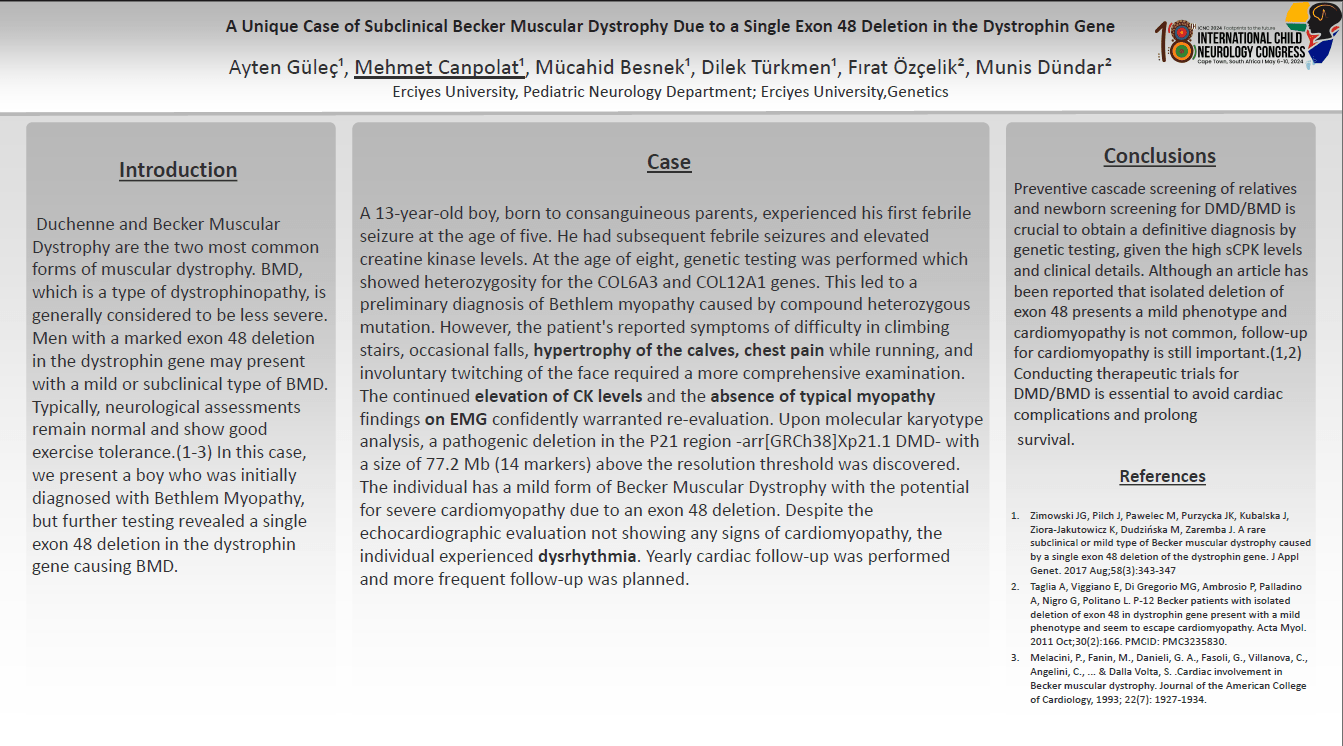A Unique Case Of Subclinical Becker Muscular Dystrophy Due To A Single Exon 48 Deletion In The Dystrophin Gene
Becker Muscular Dystrophy (BMD) represents the less severe form of dystrophinopathies. Men with a marked exon 48 deletion in the dystrophin gene show a mild or subclinical type of BMD. Neurological assessments remain largely normal and show good exercise tolerance. A 13-year-old boy born to consanguineous parents had his first febrile seizure at the age of five. This was followed by febrile seizures and elevated creatine kinase levels. At the age of eight, he reported difficulty in climbing stairs and underwent genetic testing. As a result, heterozygosity was found for COL6A3 gene and COL12A1 gene and a preliminary diagnosis of Bethlem myopathy caused by compound heterozygous mutation was made. However, during follow-up, difficulty in climbing stairs, occasional falls, hypertrophy of the calves, chest pain while running and involuntary twitching of the face necessitated a more comprehensive examination. The continued elevation of CK levels and the absence of typical myopathy findings on EMG warranted re-evaluation. Molecular karyotype analysis revealed a pathogenic deletion in the P21 region -arr[GRCh38]Xp21.1 DMD- with a size of 77.2 Mb (14 markers) above the resolution threshold. According to the literature, this change corresponds to an exon 48 deletion leading to mild Becker Muscular Dystrophy with potentially severe cardiomyopathy. Preventive cascade screening of relatives and newborn screening for DMD/BMD is crucial to obtain a definitive diagnosis by genetic testing, given the high sCPK levels and clinical details. Conducting therapeutic trials for DMD/BMD is essential to avoid cardiac complications and prolong survival.
Ayten GULEC
Erciyes Univercity
Turkey
Mehmet Canpolat
Erciyes Univercity
Turkey
Mucahid Besnek
Erciyes Univercity
Turkey
Dilek Turkmen
Erciyes Univercity
Turkey
Fırat Ozcelik
Erciyes Univercity
Turkey
Munis Dundar
Erciyes Univercity
Turkey

Munis Dundar
Erciyes Univercity
Turkey